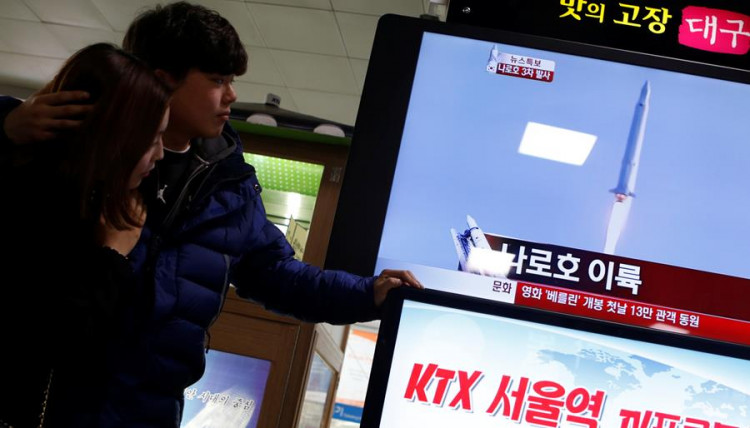South Korea is poised to launch its first domestically constructed rocket into orbit on Thursday, a significant step toward reviving the country's space program.
South Korea's flag-emblazoned three-stage KSLV-II NURI rocket stood on its launch pad at the Naro Space Center before of its scheduled 5 p.m. (0800 GMT) launch with a dummy satellite.
The NURI is planned to deliver 1.5-ton payloads into orbit 600 kilometers to 800 kilometers above the Earth. Future plans for South Korea include the launch of surveillance, navigation, and communications satellites, as well as lunar explorations.
The launch was originally set for an hour earlier, but officials said they ran into complications verifying the craft's valves. Weather conditions were also being studied in light of reports of strong upper-atmosphere winds.
"There is no problem with the rocket itself," Yong Hong-taek, first deputy minister of science and technology, said during a space center briefing.
The 200-ton rocket was relocated to its launch pad and raised into position on Wednesday under the supervision of the Korea Aerospace Research Institute (KARI).
"All necessary preparations have been made, including umbilical connection and inspection," the Science and Technology Ministry stated in a statement.
The rocket's three stages are powered by liquid-fuel boosters developed by a subsidiary of South Korea's Hanwha conglomerate, with the first stage featuring a cluster of four 75-ton boosters, the second stage featuring another 75-ton booster, and the final stage powered by a single seven-ton engine.
Space launches have long been a contentious issue on the Korean peninsula, where North Korea is sanctioned for its nuclear-weapons-capable ballistic missile development.
South Korea's future plans include for the launch of a variety of military satellites, but officials deny that the NURI is capable of being used as a weapon.
The country's most recent such rocket, launched in 2013 following numerous delays and several failed tests, was created in collaboration with Russia.
Having its own launch vehicle will allow South Korea greater control over payload types and launch timetables, as well as the ability to protect "sensitive" payloads such as spy satellites, officials told Reuters.






